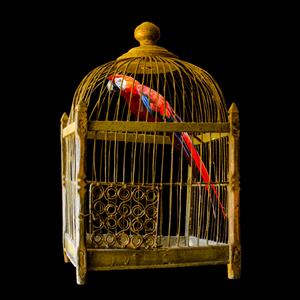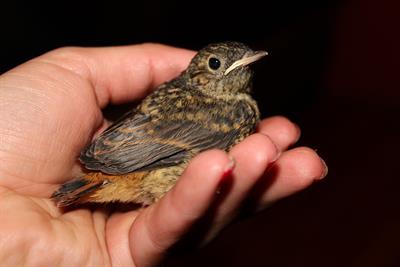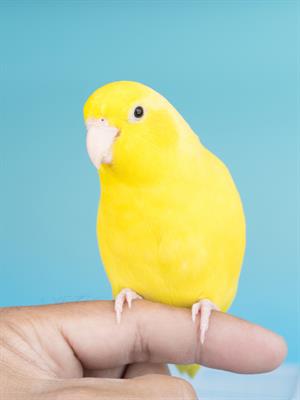
PUMPA - SMART LEARNING
எங்கள் ஆசிரியர்களுடன் 1-ஆன்-1 ஆலோசனை நேரத்தைப் பெறுங்கள். டாப்பர் ஆவதற்கு நாங்கள் பயிற்சி அளிப்போம்
Book Free Demo"Princess September" takes place in Siam (Presently Thailand). We are informed that the King and the Queen have given birth to a nine daughters. As a result, naming the princesses has become a tedious job. In addition, the queen frequently becomes troubled when recalling the names of her daughters. After reading the issue, the king mulls over a remedy to the imposed difficulty.
To make things simpler, the king decided to name his daughters in a specific order. He settled on the months of the year. As a result, he named his eldest daughter January and went on to name his youngest daughter September.

The king, Queen and Princess
Commonly, monarchs' birthdays are celebrated as kingdom festivals. Thailand still observes a national holiday on July \(28\)\(^{th}\) (as of \(2021\)) to commemorate the birthday of their beloved King Vajiralongkorn.
The King from "Princess September" had an unusual birthday celebration, defying the conventional birthday ceremony. He preferred to distribute gifts to receiving a few for himself.

The act of gifting each other
Unfortunately, the King had no useful presents for that recent birthday. The king later gave each princess a green parrot in a golden cage.
This unique present enthralled the Princesses to no end. The Princesses were quite proud of their parrots. They spent an hour each day teaching them how to communicate. As a result, all of the parrots became fluent in uttering "God save the King" and "Pretty Polly" in seven distinct Oriental languages.

A parrot in a golden cage
"God save the King" is a popular royal hymn of the world's realms. It demonstrates the people of the kingdom's allegiance to the ruler. Likewise, "Pretty Polly" is a common folksong found in the North American and the British regions of the world. Commonly, "Pretty Polly" is one of the first few phrases taught to parrots.
The term Oriental is used in British English. It is used to indicate the Eastern and South-eastern countries. As mentioned in "Princess September", the narrative is set in Thailand, an Oriental country.
Princess September went to say "Good morning" to her parrot one lovely morning. She was heartbroken when she discovered the bird dead at the bottom of the golden cage.
The little princess cried uncontrollably as she realised she had suffered an incredible loss. The Maids of Honour attempted everything they could to console her, but it was fruitless.

A sobbing child
The Maids of Honour, unable to console the Princess, decided to forward the message to the Queen. After hearing the Maids of Honour, the Queen pronounced the situation to be "stuff and nonsense." She then directed the Maids of Honour to send the child to bed hungry.
The Maids of Honor, on the other hand, had a party to attend. As a result, they hurriedly put September to bed and abandoned her. However, the Princess had not slept. She was weeping even though she was hungry. At that very time, she noticed a little bird fly into her room.
When the Princess saw the unusual activity, she dried her eyes and sat on the bed. The tiny bird suddenly erupted into a lovely song. He began singing about the lake in the King's garden, then about the willow trees that mirrored in the calm water and the goldfish that floated in and out of the reflected branches.
What had occurred had captivated the Princess. She had stopped sobbing and had forgotten about her lack of food. Finally, she acknowledged that it was a charming song.
In this portion of the story, the Queen mother does not heed the child's grievances, displaying her careless attitude towards her child. Instead of being supportive, she dismisses her child's state of mind as mere foolishness. On the other hand, the Maids of Honour exhibit negligent behaviour too. Instead of being by the side of the mourning child, they set out to party. Defying the Queen's orders, the Maids of Honour does not even put the child to proper sleep.
According to Somerset Maugham's original title, "Princess September and the Nightingale", the bird that visits the princess' chamber is a Nightingale, a songbird.
Nightingales are migratory birds that one may find across Europe and Africa.
In popular literature, Nightingales are often regarded as an object of symbolism. The Nightingale is widely seen as a spring signal, with its song bringing in new leaves after the winter.
Similarly, in this story, the Nightingale uplifts the mood of the otherwise grieving Princess, like spring after a gloomy winter.

A nightingale
The small bird greeted the Princess with a courteous bow. Then, he abruptly declared his wish to replace the deceased parrot as her pet. He went on to say that while he is not particularly attractive, he does have a lot better voice.
Princess September was overjoyed at the bird's suggestion. She enthusiastically clapped her hands. Later, the bird climbed into her bed and sung her to sleep.
When the Princess woke up the following day, the bird was still in her room. She opened her eyes and immediately greeted the bird with a good morning. She fed him rice out of her hands and let him bathe in her saucer while her Maids of Honour served her breakfast.
The songbird then performed an excellent song to demonstrate his vocal abilities. The Maids of Honour were raptly listening to the tune. They further said that they had never heard a finer piece. Princess September was thrilled about herself after hearing this statement.
The Princess then announced that it was time to present the bird to her eight sisters.
To depart to meet her eight sisters, the Princess extended out her right hand's first finger, which acted as a platform. The little bird crashed down and landed on it.

A bird sitting on a finger like a perch
September marched briskly through the castle and summoned each of the Princesses. She made her pet bird entertain the other Princesses. Each of the eight Princesses received a distinct song from the bird.
On the other hand, the parrots could only utter 'God save the king' and 'Pretty Polly.'
Finally, she presented the King and Queen the tiny bird. They were both shocked and overjoyed.
The Queen was the one who spoke out first. She reflected on how she had made the correct decision to send September to bed without an evening meal. The King compared the bird to parrots. He stated that the songbird sang far superior to the parrots.
Because 'God save the king' is the most popular chant globally, the Queen assumed the King would become bored of hearing the parrots repeat it. The Queen was even surprised about why their daughters had chosen to teach their parrots that exact phrase.
Despite the parrots' and people's constant shouts of "God save the king," the King found the spirit commendable. However, he indicated that he had become bored of hearing the parrots exclaim 'Pretty Polly.'
The Princesses decided it was time to stand up for their parrots. As a result, they reminded their parents that the parrots could say "Pretty Polly" in seven different languages.
In turn, the king acknowledged the princesses. He said, jokingly, that the parrots reminded him too much of his counsellors. He believed that both sides might say the same thing in seven different ways, none of which would make sense.
We could analyse the King's and the Queen's characters well after presenting to them the nightingale. Until then, the parrots were celebrated by the couple. However, after the songbird's arrival, they heaped praises over the bird. The Queen went a step ahead in treating her careless attitude towards her children as right and just.
Despite being overtly connected with the parrots in the past, the King and the Queen found the parrots absurd after listening to September's pet bird. Also, without considering the eight Princesses' mindset, the King said he could tolerate "God save the king" as it demonstrated his reign over the kingdom. But, "Pretty Polly" did not excite him anymore.
The King and the Queen only cared about momentary needs, from naming the Princesses to shifting their fondness towards the songbird. The couple never bothered about the long run and the implications their words might have had on their children.
The princesses were upset by the abrupt shift in attention to the nightingale. This quick change of events did not go unnoticed by the parrots. Even the parrots appeared dejected.
Princess September, on the other hand, was thrilled. She joyfully raced around the palace's chambers, singing like a lark. By following her, the bird joined her in her joyous celebration.
The fascination with the songbird and the cheerful celebration of Princess September lasted over many days. The envious princesses were adamant about putting an end to this situation. As a result, they banded together to develop a plan to take on September and her pet bird.
The princesses approached September and settled in a circle around her.
The princesses expressed their sorrow for the untimely passing of September's lovely parrot. They mentioned that it would be terrible not to have a pet bird as they do. Taking advantage of the situation, they promised to use their pocket money to purchase her a beautiful green and yellow parrot.
Princess September politely refused their offer when she realized she didn't need a new pet. She went on to add that she wouldn't know what to do with a green and yellow parrot. She even mentioned that she had a pet bird that sang her the most beautiful songs.
Disgusted by September's response, the princesses pointed out the small bird's tendency to fly in and out as he pleased. They thought September's fondness for the bird was pointless. They raised their brows and looked around the room to emphasize the bird's wayward behaviour.
They then inquired about the bird's whereabouts, to which Princess September responded that he had gone to see his father-in-law.
In an attempt to establish doubt in September's mind, the princesses slyly inquired whether there was any evidence of the bird returning. September replied in the affirmative.
The selfish princesses seized the opportunity to advise against the bird's certain return. They even suggested that if he returned, she put him in the cage for good.
Princess September stated that she enjoyed seeing him swoop around the room. The princesses responded by threateningly emphasising the need for safety and exited the room, leaving September disturbed.